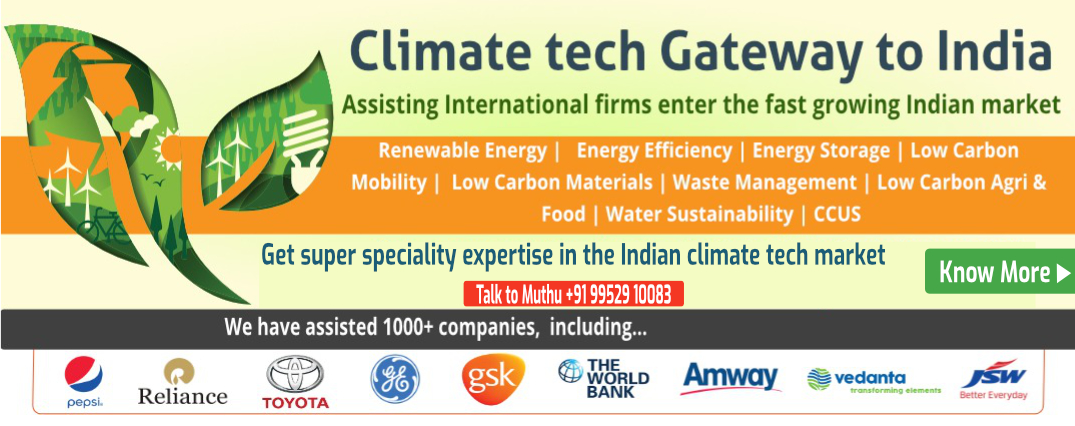This post is a part of Climate G2I Intelligence series from Energy Alternatives India (EAI), India’s leading climate-tech consulting firm.
G2I stands for Gateway 2 India, and provides comprehensive market intelligence and go-to market assistance for International firms entering the Indian climate-tech market. More about Climate G2I from here
Headlines are abuzz with news of a significant partnership shaking up the Indian electric vehicle (EV) sector. EKA Mobility, a rising Indian player specializing in electric commercial vehicles, has joined forces with two global giants – Mitsui, a Japanese trading and investment powerhouse, and VDL Groep, a Dutch leader in commercial vehicle manufacturing. This collaboration is set to make waves, with a projected investment exceeding USD 100 million (around Rs. 850 crore).
EKA Mobility is an Indian electric vehicle and technology company focused on commercial vehicles like buses and light commercial vehicles. Mitsui & Co. Ltd. is a renowned global Japanese trading and investment giant with interests in energy and mobility. VDL Groep is a Dutch multinational specializing in the development, production, and sales of buses and other commercial vehicles.
The partnership’s primary goal is nothing short of ambitious – to transform India into a global hub for manufacturing and sourcing electric vehicles, specifically focusing on commercial vehicles like buses and light trucks. This substantial investment signifies growing confidence in the potential of India’s EV market. It paves the way for further innovation, scaled-up production, and strengthens India’s position in the global clean transportation sector.
Net Zero by Narsi
Insights and interactions on climate action by Narasimhan Santhanam, Director - EAI
View full playlistIndia’s commitment to curbing emissions, alongside rising fuel costs and favorable government policies, have ignited the EV revolution. The market potential is staggering, with the Indian EV market expected to grow from USD 3.21 billion in 2022 to a whopping USD 113.99 billion by 2029. This growth offers massive opportunities across the EV value chain, including manufacturing, battery technology, charging infrastructure, and software solutions.
While India’s EV potential is vast, success requires navigating certain challenges. High upfront costs for EVs, limited charging infrastructure, and a need for greater consumer awareness about EV benefits remain hurdles. However, government initiatives like the FAME schemes (providing subsidies and technological support), the Phased Manufacturing Programme (PMP) for localizing EV production, and tax benefits are fueling the EV transition. India’s push toward greater indigenization in EV technology will further reduce costs and create long-term sustainability.
Strategic partnerships like the one between EKA Mobility, Mitsui, and VDL Groep are driving innovation and investment in India’s EV sector. Moreover, this partnership could serve as a catalyst, attracting other international players to the Indian EV market, further fueling its growth trajectory. And such collaborations are crucial for tackling challenges and scaling up production. Additionally, advancements in battery technology, expansion of charging networks, and increased consumer awareness are key areas influencing the sector’s trajectory.
The Indian EV market is in a state of dynamic transformation. The confluence of policy, technological advancement, and strategic investments is setting the stage for India to emerge as a key player in this global revolution.
This post is a part of Climate G2I Intelligence series from Energy Alternatives India (EAI), India’s leading climate-tech consulting firm.
G2I stands for Gateway 2 India, and provides comprehensive market intelligence and go-to market assistance for International firms entering the Indian climate-tech market. More about Climate G2I from here






 Our specialty focus areas include
Our specialty focus areas include



